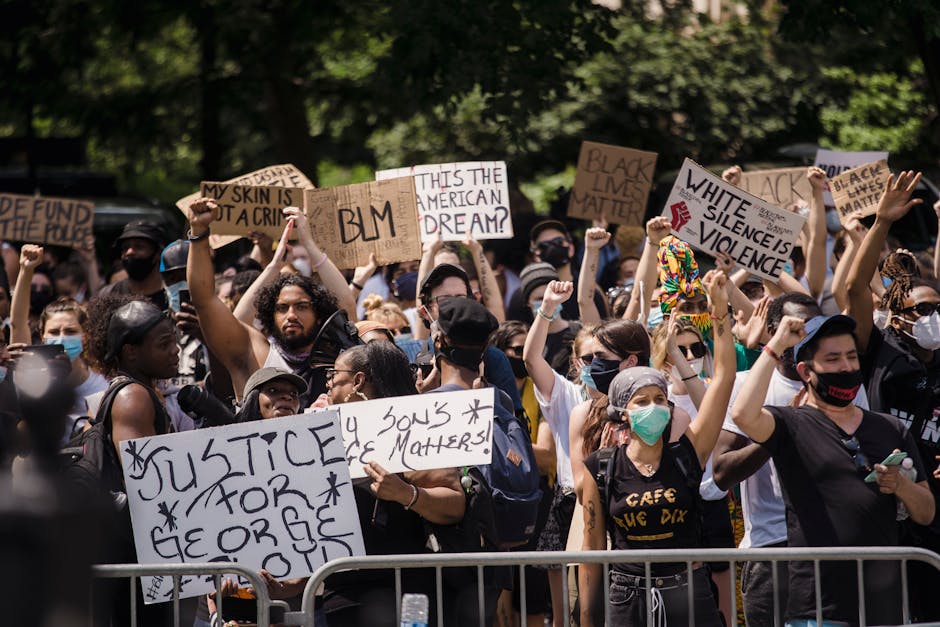
The Green Card Gauntlet: Navigating Deportation Threats
Why Green Card Holders Face Real Deportation Risks
Green card deportation is a harsh reality for thousands of lawful permanent residents each year. Despite their legal status, they can lose their right to remain in the U.S. and face removal for various reasons.
Key Deportation Risks for Green Card Holders:
Criminal Convictions - Aggravated felonies, crimes involving moral turpitude, drug offenses, domestic violence, and firearms violations
Immigration Fraud - Lying on applications or willful misrepresentation of material facts
Abandoning Residency - Extended absences from the U.S. or filing taxes as a non-resident
Security Violations - Activities related to terrorism, espionage, or national security threats
Public Charge - Becoming primarily dependent on government assistance within five years of entry
The stakes are high, as recent policy changes mean even minor, old offenses can trigger deportation. This reflects the anxiety many legal residents feel, with one asking, "What's the whole purpose in doing things the legal way if they're not caring if you're doing things the legal way?"
Green card holders have legal rights and defenses, but navigating them requires understanding complex terms like "aggravated felony" and "moral turpitude," which have broad legal meanings.
The current enforcement climate is unforgiving. At its peak, immigration detention has held nearly 60,000 noncitizens, reflecting an aggressive approach that affects legal residents who run afoul of the law. Even seemingly minor infractions, like a decade-old $25 bad check, have resulted in detention and deportation proceedings for long-term residents.
Legal Grounds for Green Card Deportation

The Immigration and Nationality Act outlines the legal grounds for green card deportation, which fall into two categories: non-criminal violations and criminal offenses. Deportation isn't just for undocumented immigrants; lawful permanent residents can face the same consequences if they violate these complex laws.
Non-Criminal Reasons for Deportation
Staying out of criminal trouble isn't always enough. Several non-criminal actions can put your green card at risk, often catching residents by surprise.
Immigration fraud is one of the most serious grounds. Lying or willfully omitting material information on an immigration application constitutes fraud. The government only needs clear and convincing evidence to prove it.
Abandoning your residency is another common issue. Your green card requires you to make the U.S. your permanent home. Extended absences (often over 180 days) or actions indicating intent to live elsewhere, like filing taxes as a non-resident, can lead to a finding of abandonment. Learn more about long absences and their impact.
The public charge ground applies if you become primarily dependent on government aid within five years of entry for reasons that existed before you arrived in the U.S.
Security violations trigger removal proceedings quickly. Any involvement in espionage, sabotage, or terrorism is a direct path to deportation. A rarely used law also allows removal if your presence threatens U.S. foreign policy interests.
Criminal Offenses Leading to Deportation
Criminal convictions are the most common trigger for removal. Immigration law defines deportable crimes differently than state courts, meaning a minor state conviction could be a serious federal immigration offense. The key categories include aggravated felonies, crimes involving moral turpitude, controlled substance offenses, firearms violations, and crimes of domestic violence, stalking, or child abuse.
Even old convictions can trigger deportation, as time does not erase these offenses under immigration law.
Drug offenses are especially dangerous. This includes trafficking, distribution, and most possession charges. While a narrow exception exists for a single offense of possessing 30 grams or less of marijuana, the conflict between state legalization and federal law makes any marijuana-related activity risky.
Domestic violence and firearms offenses are also explicitly listed as deportable crimes. A misdemeanor under state law might still qualify as an "aggravated felony" for immigration purposes, as the definitions are broader than most people expect.
For a deeper understanding, you can explore what crimes are eligible for deportation and their classification under immigration law.
Understanding "Moral Turpitude" and "Aggravated Felonies"
Immigration law uses confusing terms like "aggravated felony" and "crime involving moral turpitude" (CIMT). These have broad, specific meanings that differ from criminal law and often catch green card holders by surprise.
What Qualifies as an "Aggravated Felony"?
You might hear "aggravated felony" and think of heinous crimes, but the term is far more expansive in immigration law. It is defined by immigration law, not state law, and includes many offenses that are misdemeanors. It doesn't mean the crime was "aggravated" in the common sense.
Common examples of aggravated felonies include murder, rape, and drug trafficking, but also theft or fraud offenses with a loss over $10,000, and certain tax evasion crimes.
The sentence is critical. For some crimes like theft, a sentence of one year or more (even if suspended) is enough to classify it as an aggravated felony, leading to green card deportation. This makes plea bargaining very risky for non-citizens.
How Courts Determine a "Crime Involving Moral Turpitude" (CIMT)
The concept of a CIMT is notoriously vague but powerful. No statute lists all CIMTs. Instead, case law defines it as conduct that is "inherently base, vile, or depraved, contrary to the rules of morality," according to U.S. Citizenship and Immigration Services.
Intent is the key element. CIMTs generally involve fraudulent or evil intent, so crimes like theft, perjury, and fraud almost always qualify.
Minor crimes can have major consequences. For example, an Irish grandmother who had lived in the U.S. for 47 years faced deportation over a decade-old $25 bad check, showing how even insignificant offenses can be classified as a CIMT.
Can a Misdemeanor or Marijuana Possession Cause Deportation?
Yes, misdemeanors can cause deportation. It's a dangerous misconception that only felonies lead to removal. A misdemeanor is deportable if it qualifies as a CIMT, a domestic violence crime, or a drug offense. For instance, NPR reported on a green card holder detained for a decade-old misdemeanor drug charge.
Drug offenses are a treacherous area. Nearly any conviction related to a controlled substance can lead to deportation under the Immigration and Nationality Act. While there's a narrow exception for a single offense of simple possession of 30 grams or less of marijuana, it's very limited.
The conflict between state legalization and federal law makes any marijuana activity risky. Even expunged charges can be used for deportation, as seen in the case of Tae Heung "Will" Kim, a long-term resident detained over a minor 2011 marijuana possession charge.
The Deportation Process and Your Rights
Facing green card deportation is an overwhelming legal battle, but you have rights. Understanding the process is key to fighting back.
What Happens When You're Placed in Removal Proceedings?
The process begins with a Notice to Appear (NTA). This document lists the government's allegations and the specific laws you allegedly violated, explaining why they seek your removal.
Your case goes to Immigration Court, where a government attorney must prove the charges with "clear and convincing evidence". They may use criminal records or tax filings as proof.
Crucially, only an Immigration Judge can order you deported. ICE or CBP officers can detain you and start the process, but they cannot revoke your green card or issue a final removal order.
Your Rights When Encountering ICE or CBP
Knowing your rights is critical when dealing with immigration enforcement.
Right to an Attorney: You have the right to an attorney at your own expense. Legal representation is critical. If detained, ask for a lawyer immediately and do not answer questions without one.
Rights at Home: ICE agents need a judicial warrant signed by a judge to enter your home. Do not open your door for an administrative warrant (signed by ICE) or without a judicial warrant.
Rights at the Border: At the border, your rights are more limited. You must answer CBP questions about your identity and status. You cannot be denied entry, but you can be detained if suspected of being deportable. CBP can also demand access to your electronic devices. The ACLU offers guidance on protecting your rights while traveling.
Legal Defenses Against Green Card Deportation
An order of removal is not automatic. Several forms of relief may be available.
Cancellation of Removal is a defense for long-term residents (LPR for 5+ years, continuous residence for 7+ years) without an aggravated felony conviction. It is a discretionary form of relief.
Waivers can "forgive" the ground of deportability. Most require proving "extreme hardship" to a qualifying U.S. citizen or LPR family member.
Appeals are possible if a judge orders you deported. An unfavorable decision can be appealed to the Board of Immigration Appeals (BIA) and then to federal circuit courts, but strict deadlines apply.
Expert Legal Help is essential due to the complexity of these defenses. A strong Removal Defense strategy is vital to protecting your future in the U.S.
Recent Policy Changes and Increased Deportation Risks

The immigration landscape has shifted, creating an atmosphere of anxiety for legal residents. Green card deportation for minor issues or even protected speech has become a harsh reality.
How the Current Enforcement Climate Affects Green Card Holders
Record-breaking detention numbers tell the story. In recent years, detention levels have reached historic highs, peaking at over 55,000 noncitizens, according to TRAC data. As Gracie Willis of the National Immigration Project noted, this "zero-tolerance approach... is certainly catching people with green cards in the process."
Border searches of electronic devices have also increased, subjecting returning green card holders to greater scrutiny.
Most troubling, authorities have used a Cold War-era law to target legal residents for protected speech and activism. High-profile cases involving university students and academics have led advocacy groups to accuse the government of violating free speech rights.
The disproportionate impact on communities of color is also concerning. Racial bias in the criminal justice system creates a pipeline to deportation, where systemic inequality threatens legal residents who believed they were safe.
Denied Green Card Applications and Deportation
Recent policy changes have turned the immigration system into a minefield for families. The frustration is captured by one spouse who asked, "What's the whole purpose in doing things the legal way if they're not caring if you're doing things the legal way?"
A key policy change now requires USCIS to issue a Notice to Appear (NTA) after denying a Family Petition if the applicant has no other legal status. This automatically places them in deportation proceedings.
This policy raises the stakes for millions of applicants, including spouses of U.S. citizens, who could be separated from their families over minor application errors.
Ironically, this policy may deter legal applications, pushing people into the shadows and increasing court backlogs. When applying legally carries the risk of deportation, many families are left with no clear path forward.
Returning to the U.S. After Deportation
A deportation order creates significant barriers to returning to the U.S., but re-entry is sometimes possible, especially for those with close family ties. Deportation results in a bar from re-entry for 5, 10, 20 years, or even permanently. However, this bar can sometimes be overcome through a complex waiver process.
Waivers and Re-entry After Deportation
After green card deportation, you are deemed "inadmissible" and barred from re-entry. A waiver is a formal request for permission to return despite the violation.
Form I-212, the "Application for Permission to Reapply for Admission," is required for nearly everyone seeking to return after a removal order. This form requests permission to reapply, addressing the removal bar itself.
Form I-601, the "Application for Waiver of Grounds of Inadmissibility," addresses the underlying reason for inadmissibility (e.g., a crime or fraud). It often requires proving "extreme hardship" to a U.S. citizen or lawful permanent resident spouse or parent. This is a high standard requiring proof of severe impacts beyond normal family separation.
Marriage Green Card After a Past Deportation
Obtaining a marriage-based green card after deportation is extremely complex but possible with expertise and patience.
The process involves two main steps: an approved marriage petition (Form I-130) filed by your spouse, followed by successful I-212 and/or I-601 waivers to overcome the deportation bar.
Your marriage will face intense scrutiny. You must provide extensive evidence of a bona fide relationship, such as joint finances, shared residence, photos, and affidavits from friends and family.
A critical legal strategy is essential. It requires a battle-tested approach to present a compelling case and ask the government for a second chance. A mistake can result in permanent separation from your family.
Conclusion: Secure Your Future with a Battle-Tested Defense
Protecting your green card is crucial. The laws surrounding green card deportation are complex and the enforcement climate is unforgiving. A minor misstep or old conviction can lead to detention and the loss of your life in the U.S.
The stories shared here illustrate a harsh reality: green card deportation can happen to anyone, regardless of how long you've lived in the U.S. or how minor a past mistake seems.
If you are a green card holder with a criminal charge or past conviction, the time to act is now—before you are detained and separated from your family.
You need a legal defense team that knows the system from the inside out. This is not the time for generic advice; you need an attorney who understands how ICE and DHS operate.
Attorney Iris Guerra Bravo brings over 14 years of insider experience from ICE and DHS to every case. Her unique perspective allows Guerra Bravo Law Firm to build battle-tested, individualized strategies for complex immigration cases.
Located in the heart of the Rio Grande Valley, our offices in McAllen and Brownsville serve clients throughout South Texas, including Edinburg, Harlingen, Mission, Pharr, Weslaco, Mercedes, Alamo, San Juan, Donna, Hidalgo, Palmview, La Joya, and Penitas. We understand the unique challenges facing our community and the immigrant families who call Texas home.
Don't leave your future to chance. Whether you're facing removal, assessing your risk, or helping a loved one, we are here to fight for you. Protect your future. Contact our firm for a consultation on your removal defense case.


